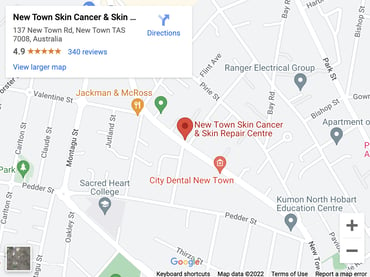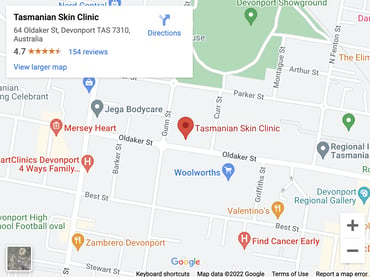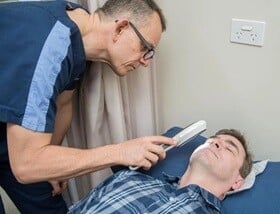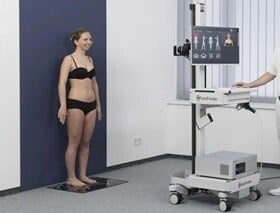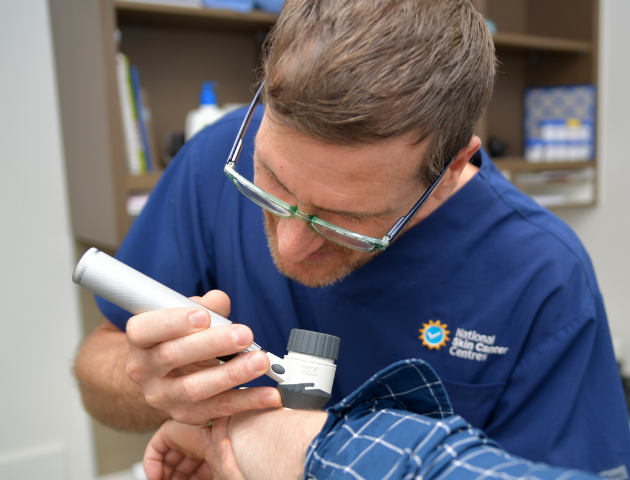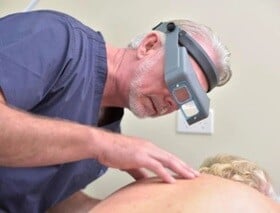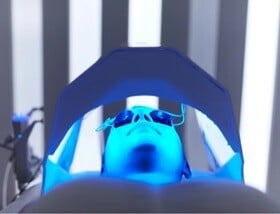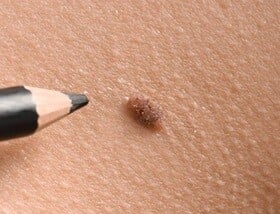Skin clinics in Hobart & Devonport (Tasmania)
At our skin clinics in Hobart and Devonport, Tasmania, we provide comprehensive care for your skin health. For the best care, our qualified doctors and trained support staff provide premium skin cancer care and cosmetic skin treatments.
Our medical team provides muscle relaxants and targeted skin treatments to address ageing, sun damage, acne, rosacea, and more. We can help you with mole removal, solar damage topical treatments and muscle relaxants to help you look and feel your best!
Did you know melanoma diagnoses in Tasmania are up to 20 per cent higher than the national average? The skin clinics in Hobart and Devonport also offer skin cancer screenings, total body photography*, surgical and non-surgical treatments for skin cancer, and care for wounds and scars.
People come to see us from all over Tasmania, including New Town, Lenah Valley, Mount Stuart, North Hobart, Hobart CBD, Moonah, Kingston, Sorell, Battery Point, Sandy Bay, Glebe, Lutana, Devonport, Latrobe, Sheffield, Railton, Launceston, Burnie, Penguin, Ulverstone, Mole Creek, and surrounding areas. You can see our local Tasmanian doctors in one place to save time and make it easier for you to put your skin health first!
* Available in select locations.
Our skin clinics in Hobart and Devonport (Tasmania)
New Town Skin Cancer & Skin Repair Centre
Address
137 New Town Road
New Town, TAS 7008
Phone
03 6240 4820
Opening Hours
Monday to Friday: 8.00am - 5.00pm
Tasmanian Skin Clinic
Address
64 Oldaker Street
Devonport, TAS 7310
Phone
03 6424 5003
Opening Hours
Monday to Friday: 9.00am - 5.00pm
Services in our skin clinics in Tasmania
Services in our cosmetic clinic in Tasmania
Frequently Asked Questions
Why are skin cancer checks important in Hobart and Devonport?
Melanoma diagnoses in Tasmania reach up to 20% higher than the national average, with high skin cancer rates due to a predominantly Caucasian population and a false belief that Tasmania has low UV levels. Early detection provides the best chances of successful treatment.
If you are at a high risk for or have already been diagnosed with skin cancer, it is essential to have a skilled medical practitioner examine your skin at least once a year or every few months. A frequent self-examination is also a great technique to monitor your skin between skin checks, but it should not be depended on to detect everything because skin cancer is sometimes imperceptible to the human eye.
Doctors with advanced training in skin cancer who work at our clinics in New Town and Devonport will perform a comprehensive examination of your skin, searching for moles, freckles, or any other indications of skin cancer.
Am I at risk of skin cancer?
Over one million skin cancers are treated every year in Australia - more than 100 every hour! People living in Tasmania may be at particularly high risk because of the predominantly Caucasian population and the misconception that Tasmania experiences low UV levels. You may be at even higher risk if you:
- Have had skin cancer before
- Have a family history of melanoma
- Have lots of moles
- Have fair skin or fair hair
- Have blue or green eyes
- Are aged over 40
- Work outdoors or regularly enjoy outdoor activities
- Have ever been severely sunburnt
- Have ever used a solarium (tanning bed)
- Are male
What are the types of skin cancer?
Basal cell carcinoma (BCC)
The most common form of skin cancer but the least dangerous. The disease usually occurs on the upper body, head, and neck. Symptoms include lumps or dry, scaly areas. Basal cell carcinoma can be red, pale or pearly in colour. In time, it may become ulcerated or appear like an unhealed sore.
Squamous cell carcinoma (SCC)
It is not as dangerous as melanoma, but it can spread to other parts of the body if left untreated. Over several months, it grows on sun-exposed skin. It can look like a thickened, red, scaly spot that bleeds easily, crusts or ulcerates.
Melanoma
A very dangerous form of skin cancer that claims one life every five hours in Australia. It often appears as a skin lesion that is different from the other lesions on your body, with irregular borders and multiple colours, but some melanomas are invisible or show no signs at all.
What are skin checks?
A skin cancer examination in Hobart and Devonport takes between 15 and 30 minutes. Our doctors will examine your head, face, neck, chest, legs, feet, toes, arms, hands, and fingers. You will need to disrobe to your underwear, and a gown or blanket will be available for your convenience.
Skin cancers can grow anywhere on the body, so if you have worrisome lesions under your underwear, you should inform your doctor, as the doctor will only examine these areas at your request.
How often should I get my skin checked?
If you have a high risk of skin cancer and live in Hobart or Devonport, Tasmania, you need regular skin cancer checks.
A follow-up skin cancer check should occur once or twice a year or every few months for very high-risk patients.
How can a doctor with advanced skin cancer training help me?
Our skin clinics are designed for examining, diagnosing and treating skin cancer, all in one location. About 99 per cent of skin cancers are curable if detected and treated early.
A regular skin cancer check is your best defence against complex surgeries, costly procedures, and even death. Our doctors have a wealth of experience, skills and recognised certifications in skin cancer care and utilise the latest skin cancer detection and treatment tools.

